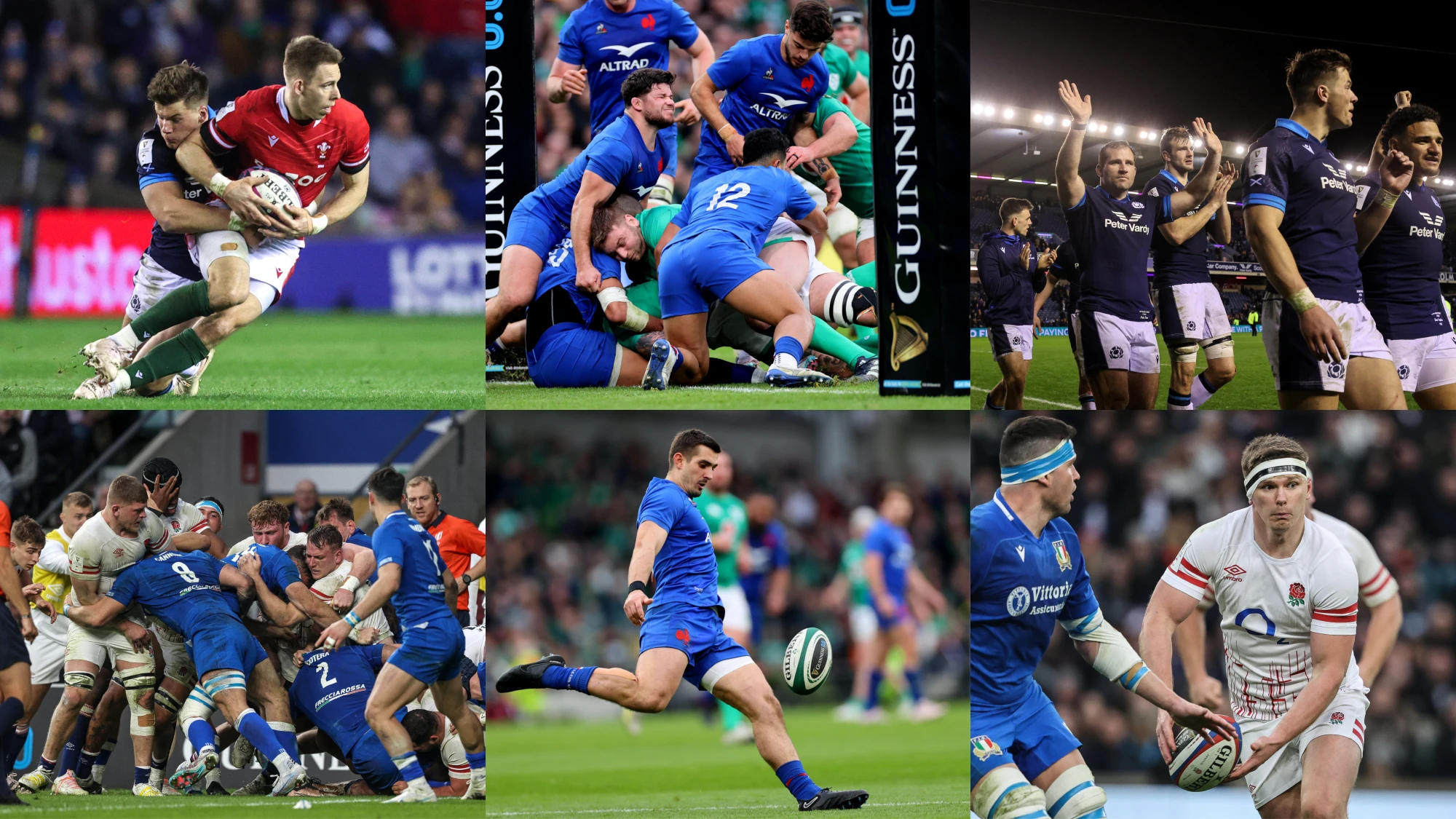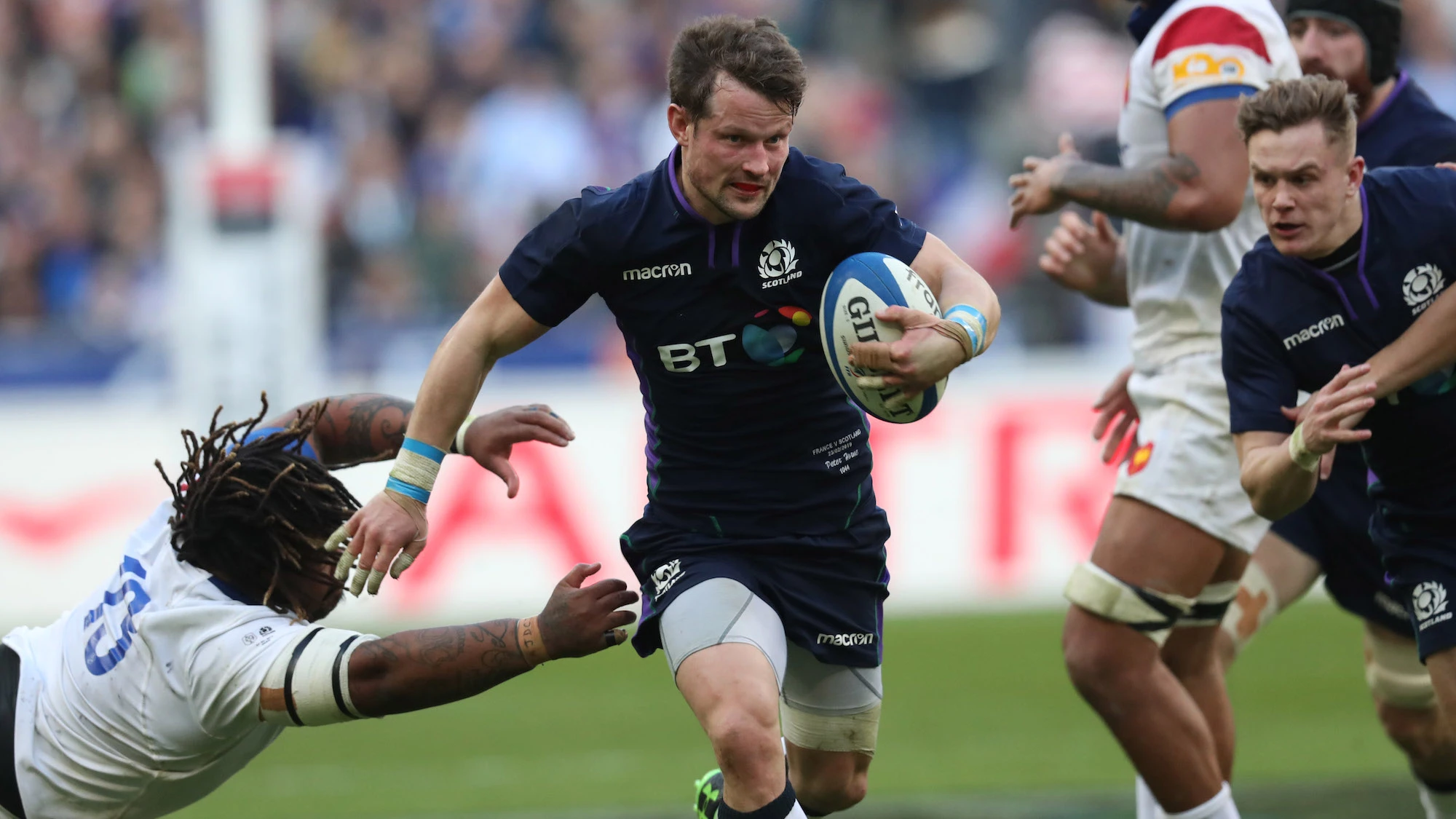The Guinness Six Nations has got off to a flying start with six cracking games over the first two rounds and plenty of reason for Ireland and Scotland fans to get excited.
With ten points apiece through two rounds, they can start dreaming of a possible Grand Slam but as the Championship constantly reminds us, nothing is decided in the first fortnight.
Every team will have a chance to settle down and take stock with a rest week ahead of Round 3, and while objectives may have been adjusted depending on results, each side will have some key aspects on which to work.
Wales – rediscover cutting edge in attack
We will start with the team who need the most urgent fixes. Wales have been well beaten in each of their first two matches, at home to Ireland and then away in Scotland.
It may be that they happen to have faced the two class acts of the Championship, but that will be no consolation for Warren Gatland.
For a team who have shipped 69 points in two games, you might think that defence would be the priority, and you can guarantee that Mike Forshaw will be working his troops extra hard after conceding three tries in the opening 20 minutes against Ireland, and four after half-time in Edinburgh.
In terms of the balance of the match though, it may be Wales’ attack which is more of a concern.
Against Ireland, they spent long periods in the opposition 22 and only had Liam Williams’ try to show for it. Crucial lineouts were lost in the red zone, and that problem continued this weekend.
Wales actually spent more time in the opposition 22 than Scotland on Saturday, and yet were on the wrong end of a record defeat. Ken Owens went over from a maul in the first half, but the visitors unable to strike thereafter.
Some of that was down to execution on the day. Rio Dyer could not hang on to a pass from Dan Biggar that might have given Wales the lead before half-time, while Williams cleared out from the side on another burst into the 22.
Still, there were also multiple attacks where Wales went through the phases in the Scotland 22 without successfully stressing Steve Tandy’s defence into either opening up a gap or infringing.
That is something that Wales will need to fix before welcoming England to Cardiff in Round 3.
Italy – fix maul defence and slow starts
There was plenty of reason for optimism in Italy after a narrow loss to France in Round 1, even if the frustration was palpable at failing to complete their comeback over the Grand Slam champions.
Backing that up at Twickenham, where the Azzurri have never won, was always going to be tough, but even so, Sunday’s loss will be seen as a disappointment.
There were glimmers of the attacking threat Italy pose, with tries for Marco Riccioni and Alessandro Fusco, while Ange Capuozzo was again a livewire.
The issue was that Italy were chasing the game very quickly, and unlike France in Round 1, England were much more disciplined, making it tough to work a way back into the game.
In both games, Italy have been slow out of the blocks, trailing 19-6 to France after half an hour, while England were 19-0 up at the break on Sunday.
Those sorts of deficits are almost impossible to overcome and that will certainly be a point of emphasis for Kieran Crowley and his team, who showed no such sluggish starts in November when they led 28-0 at half-time against Samoa and 17-8 40 minutes into their historic win over Australia.
In terms of the nuts and bolts though, the biggest work-on for Italy will be their maul defence.
Four of England’s five tries started with an attacking lineout and a rolling maul, Jack Willis and Jamie George scoring directly, Simone Ferrari conceding a penalty try for another, and Henry Arundell crossing for their final try after an initial 15-metre drive.
Even Ollie Chessum’s try, which did not come from a maul, came after Italy had just been reduced to 14 with Lorenzo Cannone sin-binned for… you’ve guessed it, a maul infringement.
With Paul O’Connell’s Ireland pack next up, Italy will know what is coming and will need to be much sharper in slowing opposition drives.
Ireland – red zone efficiency
If we are being honest, Ireland probably just need to keep doing what they are doing, given that they just handed France a first loss since 2021, picking up a bonus point along the way in one of the Championship’s greatest-ever games.
However, you do not get to the top, and more importantly, stay there, by sitting back and admiring your achievements.
Against France, Ireland needed a couple of big second-half moments – Stuart McCloskey’s turnover on his own line and Hugo Keenan’s 50:22 – to shift momentum back their way and keep France at bay.
That was, in large part, because Ireland were nowhere near as efficient as we are used to seeing them. Against Wales, they averaged 3.4 points per entry into the 22, and yet on Saturday at the Aviva Stadium, that figure dropped to a still respectable 2.5.
The issue was that Ireland got over the line, only to be held up on three occasions, with Conor Murray knocking on for another and of course that Antoine Dupont tackle on Mack Hansen.
They are so good that it did not matter, but it is also a sign that they can get even better – a thought which will concern Italy, Scotland and England over the next month.
Scotland – manage expectations and maintain strike rate
A third of Scotland’s starting XV at BT Murrayfield were not born the last time they won their opening two games in the Championship, including skipper Jamie Ritchie.
But against bogey team Wales on Saturday, Gregor Townsend’s side navigated their way through a tight first 40 minutes before running away with it in the second.
With ten points from ten and a record win over Wales under their belts, Scotland had to Paris in unfamiliar territory.
Accusations of hubris have been levelled at Scotland in the past, rarely justifiably, but managing expectations will be a challenge.
Fixtures against the world’s top two in the next two rounds should make it easy to keep their feet on the ground, even if Scotland ended their long wait for a win in Paris two years ago.
This time they travel to take on a French team smarting from their first defeat in two years, though they have never lost back-to-back games in the Guinness Six Nations under Fabien Galthié.
If Scotland are to win successive games in Paris for the first time in more than half a century, they will need to be as devastating in the opposition 22 as they have been through the first two weeks.
Against England, Scotland managed a scarcely believable 4.1 points per visit to the 22, and they almost matched it against Wales with 4 points per visit.
Finn Russell’s stunning form is a large part of why they are so effective at unlocking opposition defences and he should feel right at home in Paris, just a few miles from where he plays his club rugby.
His most recent performances against France have not been to the level we have seen so far in this Championship – including a red card in the win two years ago – but with his confidence sky-high, he will be key to Scotland’s hopes of making it three in a row.
France – find the answers in the kicking game
Standing in their way are France, last year’s champions, who may well have seen their hopes of back-to-back titles ended in Dublin.
With no points from their 32-19 loss, and allowing Ireland to take five, their destiny is well and truly out of their hands.
In a thrilling encounter, the most surprising tactical takeaway was France’s desire to play from their own half so regularly in the opening 40 minutes.
Galthié revealed afterwards that it was not a pre-planned tactic, with the players explaining that the pressure Ireland put on them around the breakdown and when clearing eventually forced them to overplay their hand.
Scotland are a very different side, but the likes of Jamie Ritchie and Matt Fagerson will have seen the impact of Caelan Doris without the ball at the weekend and will be desperate to do the same.
To counter that, France will need to be better organised with their exit strategy. In Antoine Dupont, they have one of the longest kickers in the game at nine, but if he is not given time, it may be up to Romain Ntamack and Thomas Ramos to take on greater kicking responsibilities.
Ramos did kick further than any other player on Saturday (358m) but is still an attacker by nature. There was also one misunderstanding in backfield coverage that allowed Lowe to kick a momentum-shifting 50:22, with Ireland generally dominating the territory battle.
It is an issue that Shaun Edwards and Vlok Cilliers, France’s kicking coach, will be focusing on over the next fortnight.
England – build out attacking game plan, become more clinical
A convincing victory and five points on the board is just what England needed from Sunday’s clash with Italy.
Steve Borthwick’s Leicester team was renowned for doing the basics better than anyone else, and we can already see how potent their rolling maul can be.
The lineout in general, has been a big positive from the first two weeks, while the scrum was also largely on top, with a couple of exceptions.
What will worry Borthwick and Kevin Sinfield, however, is that for the second week running, England lost their way after opening up a consequential lead.
It cost them the win against Scotland, who they led 20-12 early in the second half, and while Italy never really threatened a comeback at Twickenham, they did outscore their hosts 14-12 in the second half.
That may just be coincidence over a very small sample size, but with a trip to Cardiff next up, Borthwick will want to make sure it does not become a habit.
England’s midfield, meanwhile, looked much more balanced with Player of the Match Ollie Lawrence thriving at inside centre – even if he plays most of his club rugby one spot further out.
Despite that, the attack remains a work in progress. Owen Farrell unsuccessfully went to the boot on multiple occasions in the 22, while arguably the best backs move of the match from England saw Jack van Poortvliet’s try ruled out for obstruction when Lawrence clipped the back of Manuel Zuliani’s leg to open up a gap for Max Malins.
Given England are 160 minutes into the Borthwick era, and already onto the second midfield combination, it should not come as a surprise that the attack is not quite up to speed yet. Against a Wales team conceding 34.5 points a game, the aim has to be get it firing in Round 3.



